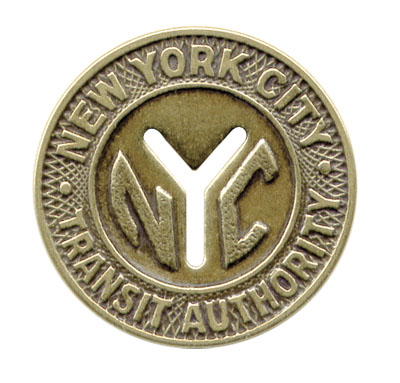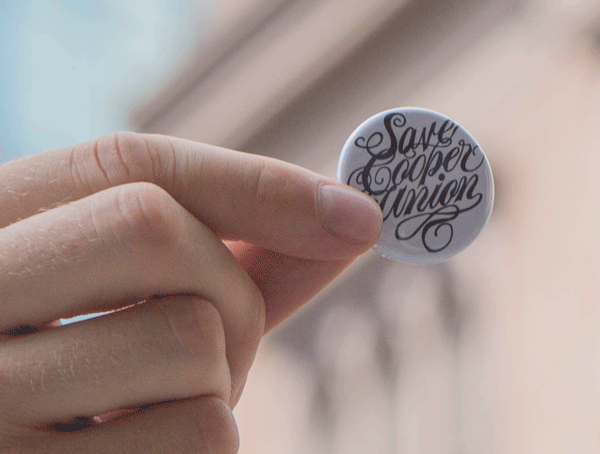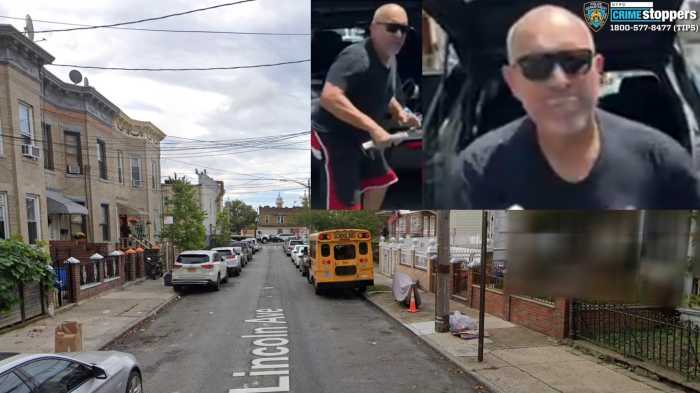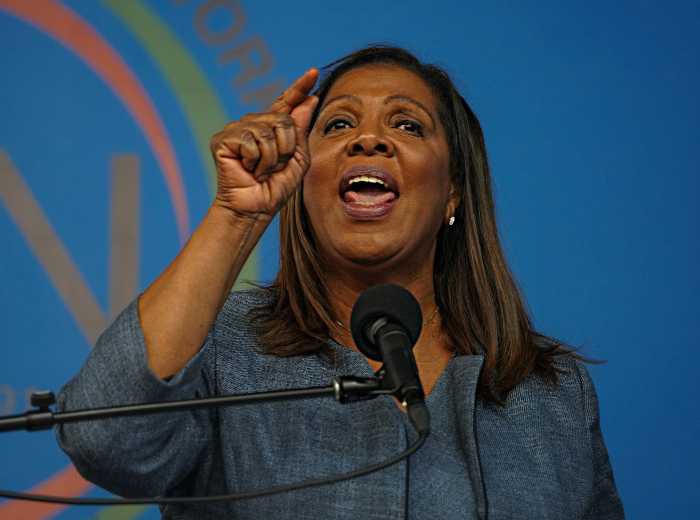
BY ZACH WILLIAMS | Students began the new semester at The Cooper Union on Tues., Sept. 2, with a reminder outside of the school’s Engineering Building that the fight to keep the 155-year-old college tuition-free continues.
The Committee to Save Cooper Union deployed a table, signs, pamphlets, a top-notch P.R. representative and plenty of vitriol toward the school’s administrators and board of trustees.
Incoming freshmen, though, were their overall target as the group comprised of alumni, students and faculty seeks new supporters.
“The incoming students are super-, super-involved compared to last year,” said Harrison Cullen, a senior who was among the dozen students and alumni representing the committee on Sept. 2.
Freshmen will pay about $20,000 in tuition this year, in contrast to students who in past years received a free education. It’s a necessary change in order to address the school’s future operating deficits, according to administrators. With the new cost of attending the school, students are also finding new ways to relate to the community there, as well as each other.
“It actually brings us together because we’re stuck in the same boat,” said Gabe Frasier, an incoming freshman from North Carolina, who expressed his support for the committee as he made his way to class.
Another first-year student said the ongoing struggle over tuition catalyzed her early-decision application last year.
“A lot of the reason I did decide to apply was to become a part of the movement, to sort of be inspired by faculty and upperclassmen who are so devoted to the school,” said Claire Klermann. She added that, to keep costs down, she will live with her family on E. 18th St.
Some new students reported that they haven’t had to pay any tuition this year because of their lower-income status. According to Cooper Union, a higher proportion of students are eligible this year for Pell Grants, available to those whose family income is less than $50,000. In recent years, about 17 to 20 percent of students qualified for this aid. This year, however, 22.4 percent of freshmen can receive such financial aid, according to school spokesperson Justin Harmon.
“This is likely to be a reflection of the fact that these students receive both a full-tuition scholarship and need-based aid that covers more of the cost of attendance, such as living expenses, materials and the like,” Harmon said in an e-mail.
An ongoing lawsuit by the committee against Cooper Union’s board of trustees aims to nullify newly implemented tuition for incoming students. Arguments were heard on Aug. 15 in State Supreme Court, with a critical factor being the court’s interpretation of Cooper Union’s founding documents, which the plaintiffs argue mandate a tuition-free institution for enrolled students. Representatives of the board of trustees disagree, The Villager reported on Aug. 21.
According to the committee, financial mismanagement resulted in the announcement from the trustees in 2013 to institute tuition on a sliding scale beginning this fall. In protest, a group of students occupied the office of President Jamshed Bharucha from May to July 2013. By January 2014 the trustees rejected alternate plans from faculty, alumni and students to deal with Cooper Union’s financial challenges.
Harmon pointed The Villager to a 2013 online video by Robert Spencer, listed in the clip as part of interim financial leadership at the Cooper Union. Spencer said in the video that the whims of the real estate market caused revenues from the college’s land under the Chrysler Building to not keep pace with rising expenditures.
Committee members further allege that college administrators are tampering with free expression regarding the tuition issue. A documentary on the life of Peter Cooper, Cooper Union’s founder, by an alumna, for example, did not receive approval for screening during freshmen orientation because free tuition was discussed prominently in it, they say. But Harmon said that critics have misunderstood the situation.
Last spring, a member of the Cooper Union Alumni Association approached the Joint Student Council about hosting an event to show the documentary, but there was no follow-up, Harmon said. By the time last week that an alumnus approached Dean Stephen Baker about the idea, orientation week activities had already been finalized, Harmon. But they are welcome to screen the movie later in the semester, he added.
In addition, the recent hiring of a new security firm led by a TV pundit who has made charged remarks about the shooting of teenager Michael Brown in Ferguson, Missouri, has raised eyebrows. The committee says that, by hiring Bo Dietl and Associates, the Cooper Union administration is further departing from the traditional spirit of the institution.
According to Harmon, the retaining of new security resulted from a study about campus security and is not meant whatsoever to counter potential civil disobedience from critics.
“Bo Dietl maintains a high public profile and has made statements about various issues that reflect a different worldview than that of many — perhaps most — members of the Cooper community,” Harmon said in the e-mail. “However, his personal statements have no bearing on how the BDA-provided security guards are to carry out their responsibilities.”
Student activist Cullen said that the local community should not be surprised if a fresh round of civil disobedience kicks off later in the semester. Right now, though, he said, the focus of the committee and its two dozen or so active members remains outreach.
On the first day, however, students waiting for their classes said while they vehemently support a tuition-free Cooper Union, the time comes when other priorities gain relative importance compared to campus activism, even while stories circulate about incoming students disadvantaged by tuition payments.
As his last year as an undergraduate begins, art student Aaron Fowler said this semester’s beginning is making him consider life after Cooper Union.
“I’ve been dealing with this for the past two years,” he said, “and I’ve sacrificed my own education for this failure of a school, and I need to worry about myself now.”





































